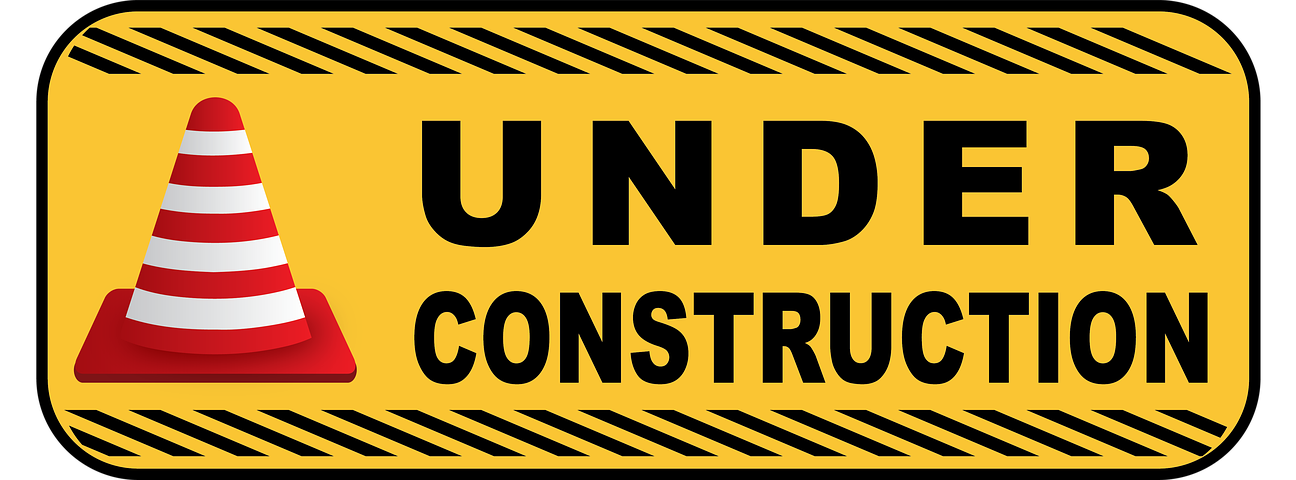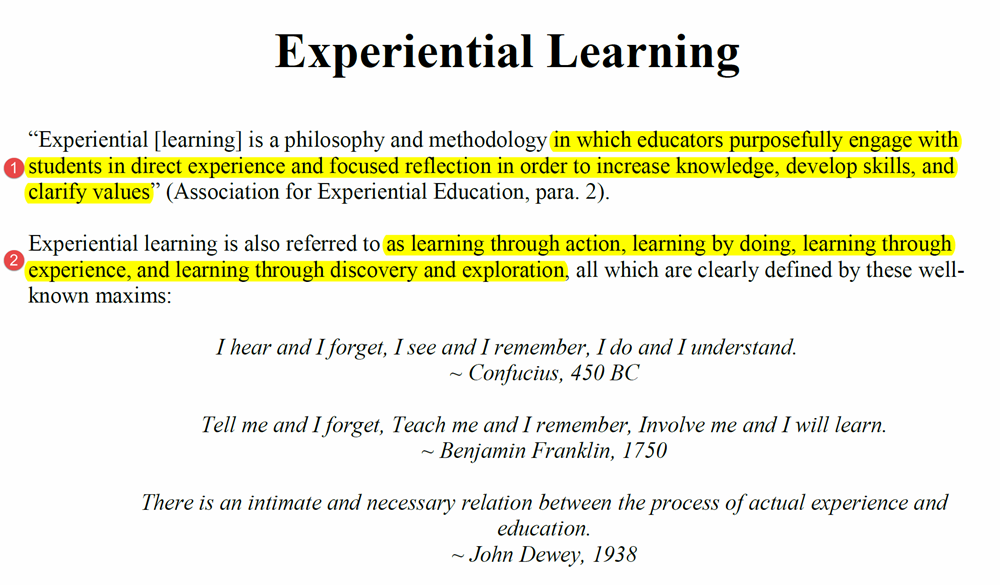Experiential Learning - a.k.a. "Learning by doing"
 Some parts of this site are currently incomplete & will be updated asap
Some parts of this site are currently incomplete & will be updated asap
Other parts will change continually so use “Refresh” in your browser !!
There is extensive use of “Tooltips” text to support learning which do not seem to render on a Smartphone
Learning -> Resources Available, All Work is Subject to DHRF's "GD"
DHRF’s Learning Policy:
Experiential Learning - Learning by Experience (by Doing)
Experiential learning is a philosophy and methodology in which educators purposefully engage with students in direct experience and focused reflection in order to increase knowledge, develop skills, and clarify values - Association for Experiential Education, para 2
 Source: Northern Illinois University, Faculty Development and Instructional Design Center pdf
Source: Northern Illinois University, Faculty Development and Instructional Design Center pdf
Coloured markup by David Husband
(1) This is exactly what DHRF is committed to achieving
(2) This is exactly what DH has been doing for many years !! (Without realising it)
The Principles of Experiential Learning (EL) 2
“The focus of EL is placed on the process of learning and not the product of learning” (UC Davis, 2011, para 6)
“Proponents of experiential learning assert that students will be more motivated to learn when they have a personal stake in the subject rather than being assigned to review a topic or read a textbook chapter”
“What is essential in EL, however, ‘that the phases of experiencing (doing), reflection and applying are present. In addition, ‘the stages of reflection and application are what make experiential learning different and more powerful than the models commonly referred to as ‘learn-by-doing’ or ‘hands-on-learning’“ (UC Davis, 2011, para 12 citing Proudman)
The following is a list of experiential learning principles as noted from the (Association for Experiential Education, 2011, para 4):
Experiential learning occurs when carefully chosen experiences are supported by reflection, critical analysis and synthesis
Experiences are structured to require the student 3 to take initiative, make decisions and be accountable for results
Throughout the experiential learning process, the student is actively engaged in posing questions, investigating, experimenting, being curious, solving problems, assuming responsibility, being creative and constructing meaning
Students are engaged intellectually, emotionally, socially, soulfully and/or physically. This involvement produces a perception that the learning task is authentic
The results of the learning are personal and form the basis for future experience and learning
Relationships are developed and nurtured: student to self, student to others and student to the world at large
The instructor 4 and student may experience success, failure, adventure, risk-taking and uncertainty, because the outcomes of the experience cannot totally be predicted
Opportunities are nurtured for students and instructors to explore and examine their own values
The instructor’s primary roles include setting suitable experiences, posing problems, setting boundaries, supporting students, ensuring physical and emotional safety, and facilitating the learning process
The instructor recognises and encourages spontaneous opportunities for learning
Instructors strive to be aware of their biases, judgments and pre-conceptions, and how these influence the student
The design of the learning experience includes the possibility to learn from natural consequences, mistakes and successes
Experiential Learning (EL) & The Flow combined !!
In view of DHRF’s commitment to support learning, there is a much higher “learning content” in the Research Work Streams & elsewhere than would otherwise be the case… Please be aware of that ↩
This is DHRF’s policy on learning too… ↩
Within the context of DHRF’s work, student = protégé ↩
Within the context of DHRF’s work, instructor = mentor ↩